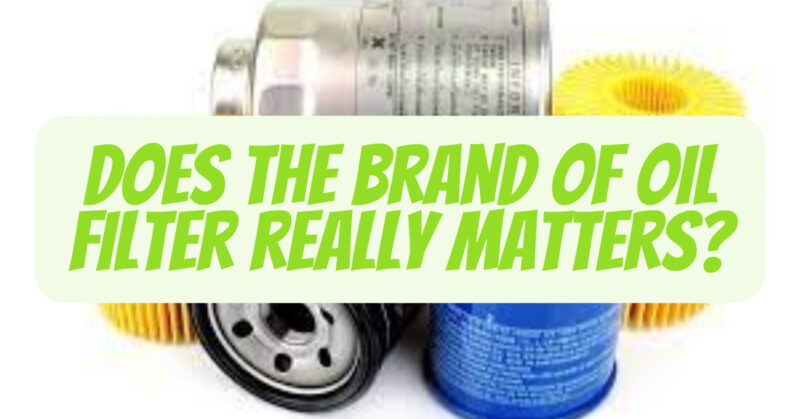Have you ever wondered which product brand suits your car? Or have you ever bought any car product based on its brand? Either way, all consumers want to keep their car engines healthy and in excellent condition to experience their best performance. Fortunately, the best way to do that is to maintain its kidney enough to support its lifeblood.
Oil Filters: A Car’s Kidneys
In keeping a car’s engine healthy, there are two vital things to consider. One is the state of its oil filter, and the other is its vulnerability to cause engine wear and tear. They affect an engine’s lifespan and efficiency. Oil filters are generally used in vehicles to avoid the passage of dangerous particles into their primary mechanism. They refine the oil that goes through the engine. Car enthusiasts, mechanics, and manufacturers consider them as the kidney of their vehicles, while engine oil serves as their lifeblood. Without the other, a car’s susceptibility to damage increases.
Thus, knowing what to look for in finding quality oil filters is significant. Here are some initial factors to remember:
- An oil filter should have an EFFECTIVE MEMBRANE that serves as its filtration media. It can be cellulose, synthetic media, or micro-glass fibers. For better effectivity, cellulose filters should have a membrane that can accommodate 20-40 microns, and 8-10 microns for synthetic media filters.
- The SIZE OF INTERNAL VALVING, THREADS, AND GASKETS should match the capacity of your vehicle. For example, in spin-on filters, one should have the same diameter, similar SAE or metric threads, and a gasket identically positioned like the original filter installed before.
- Ensure that it has an ANTI-DRAINBACK VALVE that prevents draining of the motor oil when the vehicle is at rest. Thus, it traps the oil inside the filter.
- A failsafe measure of a BYPASS VALVE should be in place once clogging occurs in the oil filter.
- It should have a NON-SLIP COATING that is useful when changing the oil filter media.
Once you check all of these on your list, the impossible task of determining the quality of an oil filter will lessen. You have become a critical consumer and learned which has good quality and which hasn’t. However, with a diverse array of oil filter products and brands ready at disposal, one can get overwhelmed by the number of things to consider. For one, does the brand of an oil filter matter or not?
Brand X vs. Brand Y: Does it matter?
Several car enthusiasts believe that the brand of oil filters matters because of its varying quality levels. Its quality determines its performance and efficiency in filtering possible contaminants, and so does its image. Usually, they rank from best to worst based on how consumers review their products. When classified as the best, it gives the product a boost in the market. Otherwise, it becomes a signal of avoidance of potential buyers. However, some believe that oil filter brands do not matter. Instead, they lean on the reasoning that not every oil filter is an exact fit for every car. No one brand fits all aspects in picking the correct component for your vehicle.
For them, it is not the brand that matters. The compatibility of an oil filter to the car and its manufacturing details is what matters. It is not the brand you should be chasing. It is the standard and quality you should keenly search for in an oil filter. With this division in answers, it seems there is no definite answer whether the brand of an oil filter matters. Consequently, it does not seem to make our job easier too. So, let us dig a little deeper and let our noses for information get that answer!
In a forum post on a civic forums website, a generic oil filter got compared to an OEM Honda filter. The former comes at a lower price, and the latter costs an extra couple of bucks. Thus, the dilemma of the worthiness of spending a little more money on an oil filter becomes a matter of inquiry. Numerous car enthusiasts vouched for choosing the OEM Honda filter, emphasizing that you get what you pay for. A lower price can reflect an oil filter’s quality, and a higher price can make a difference. For example, a 92-92% filtering capability of cheap filters makes a big difference from an expensive filter with a 99% filtering capability. And it is undeniable that most well-known brands cost more than generic brands. A $15 Royal Purple Extended Life Premium Oil Filter from Walmart became the overall best oil filter for 2022, surpassing the Mobil1 Extended Performance Oil Filter that cost $10 in a CNET ranking. The oil filter from Royal Purple got a 99% efficiency rating as it is from synthetic micro-glass. Contrarily, Mobil1’s synthetic media-made fiber ranked second with a 99.6% efficiency rating. It is because oil filters made from micro-glass fibers have additional advantages, such as low restriction on oil movement and better resilience than synthetic media.
From this, we conclude that an oil filter brand matters as its price, capacity, efficiency ratings, and consumer reviews appear as huge factors in determining its quality. Have you ever experienced using these brands? Or do you have an opinion you would want to share about this topic? Leave a comment below and have a discourse with us!

